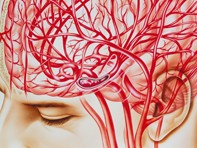Peer Reviewed
Drug update
Dabigatran etexilate for preventing stroke and systemic embolism in atrial fibrillation
Abstract
Compared with warfarin in patients with nonvalvular atrial fibrillation, dabigatran at a dose of 150 mg twice daily is more effective for the prevention of stroke and systemic embolism with a similar risk of major bleeding, and at a dose of 110 mg twice daily has similar effectiveness with less major bleeding. The TGA recommends use of the higher dose except in patients aged over 75 years or with a high bleeding risk or with moderate renal impairment, where they suggest the lower dose should be used.
Key Points
Atrial fibrillation causes embolic stroke when thrombus formed in the nonfunctioning left atrial appendage detaches and lodges in a cerebral artery. The prevalence of atrial fibrillation rises with age, from less than 0.1% in people younger than 55 years to more than 10% in those older than 80 years. Atrial fibrillation accounts for 7% of ischaemic strokes in people aged between 50 and 59 years, rising to one-third in octogenarians. Embolic strokes are often severe, and 15 to 30% of survivors are left permanently disabled.

